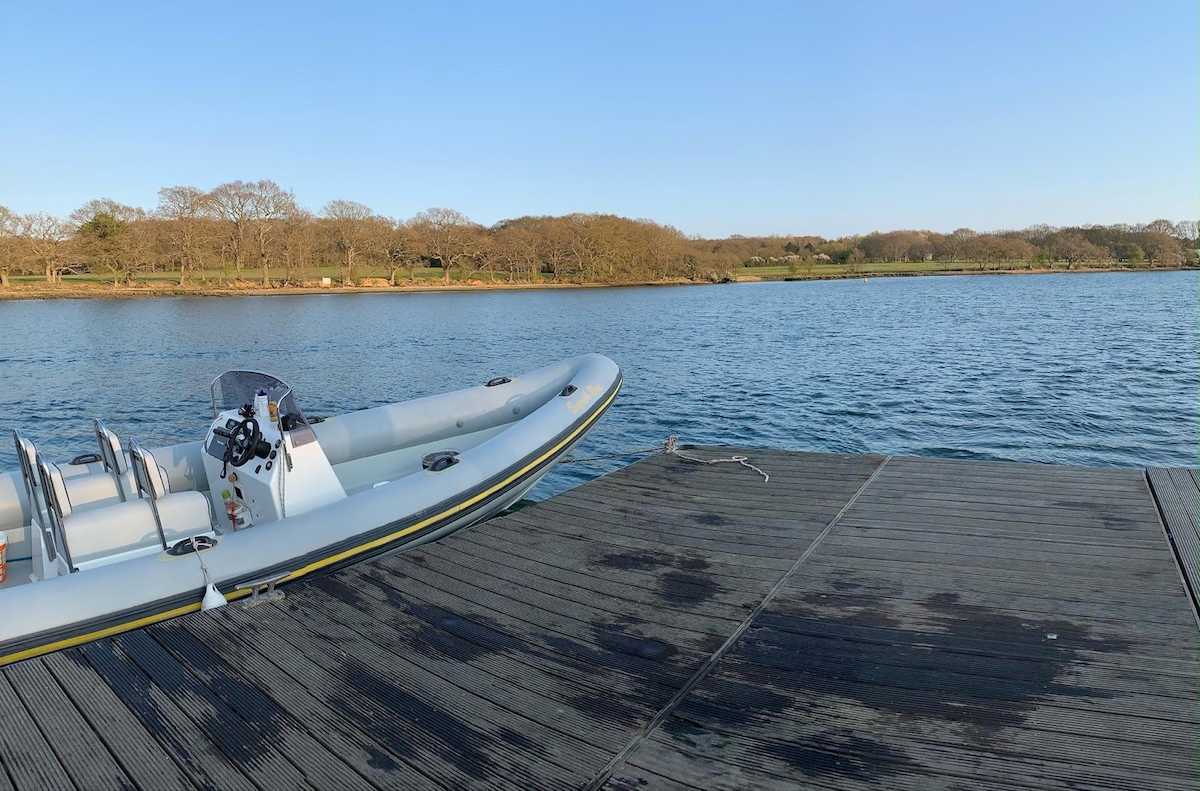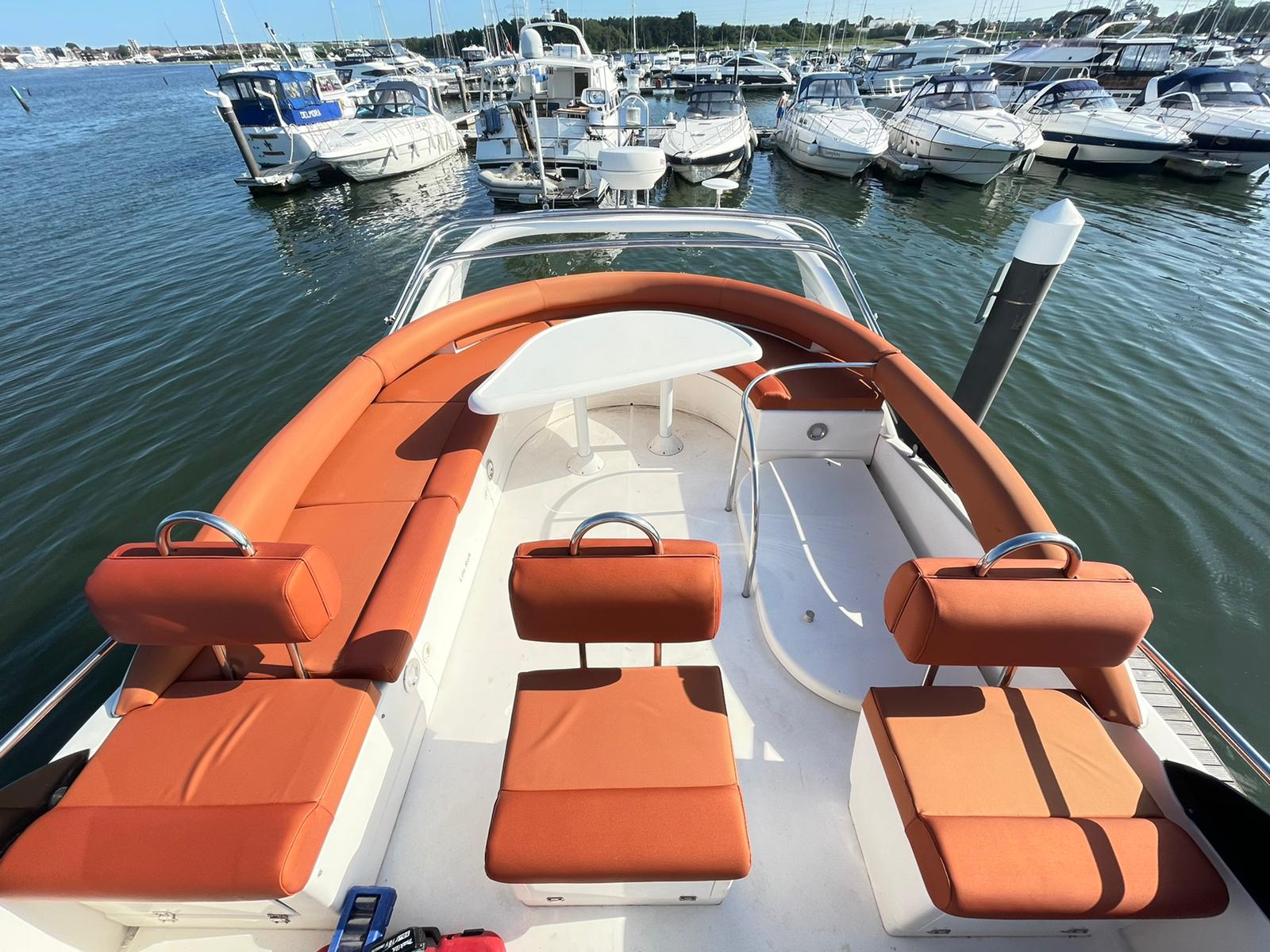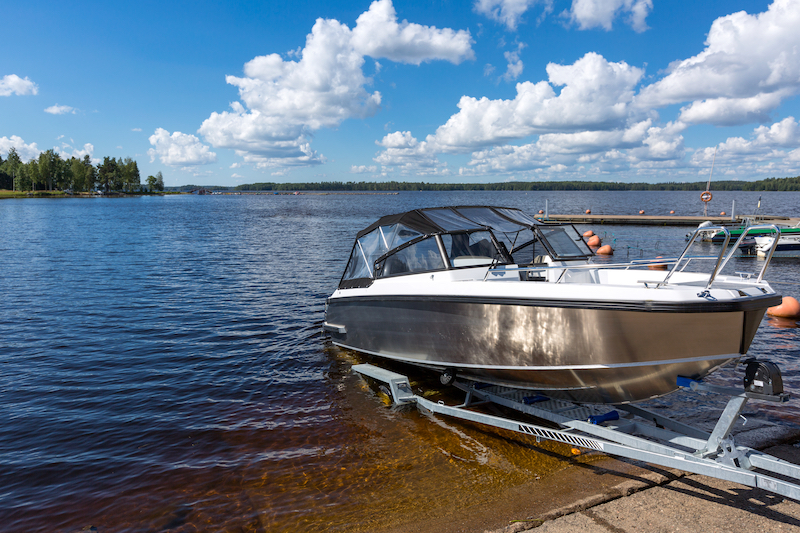Here you’ll find all of the information and some top tips when setting up a viewing and taking your potential new boat purchase for a test drive
- Arranging a viewing
- What should I be looking for during my viewing?
- What items should I test on the boat in my viewing?
- What is a sea trial?
- How do I negotiate the price of a boat?
- Tips for negotiating
Arranging a viewing
It’s worth noting that you can do thorough research on the type of boat you are after way ahead of your intention to purchase, to get a chance to take a look around one and compare models.
For example, boat shows are a great place to view new boats and there is often the chance of a discount as well as the chance to compare boats in one place. There are also boat sales websites available for you to browse boats currently on the market. It is important to stay safe whilst online and avoid scams – so check that the website is legitimate and stick to the better-known sites that come with a trustworthy reputation.
Once you have found a boat that you’d like to view and that you think suits your general requirements, it’s worth spending some time looking at the condition of the boat and the inventory. This will help guide you in terms of what monetary figure would be suitable as an offer if the boat does meet your standards in the viewing.
Before arranging a viewing of the boat you’re interested in purchasing, check that the seller is knowledgeable about the boat and their reasons for selling. It’s worth doing your research to check the price of the boat compared to others on the market to see if it is in line with the current market.

What should I be looking for during my boat viewing?
After viewing the boat it’s recommended that you speak to the boatyard, mooring operator or marina where you had your viewing to confirm that they know the seller and that there are no outstanding payments, bills or charges against the boat.
Once you have undergone a viewing of a boat you are looking to purchase, it is always a good idea to come back for a second or third viewing, with a clear view of what you want to achieve from the viewing and any questions you may have the need to ask. It is also normal to have the boat surveyed by an expert to confirm that the boat is in a good condition as advertised and to flag any underlying or hidden issues that may be present.
What items should I test on the boat in my viewing?
Whilst viewing a potential boat, inspect the outside of the boat thoroughly as well as the equipment on board.
It may be worth taking someone along with you that is also knowledgeable about boats that can provide a second opinion to your own.
Ideally, you will want to be able to operate the boat during your viewing to test everything is working as it should be – as well as examine the interior of the boat in close detail to check the condition.
What is a sea trial?
The sea trial is your opportunity to experience everything about the boat that you were unable to experience in the yard, marina or mooring.
Here you’ll get to hear the noise of the boat, feel the vibrations, get a sense of the handling and everything else regarding the operation of the boat.
It is more common to undertake a sea trial when purchasing a new boat, rather than a used boat through a private seller. If you get as far as undertaking a sea trial, it will be assumed at this point that you’re happy with the agreed price, spec, features and performance of the boat.
Your sea trial will of course depend on the weather and sea conditions – but it will help provide you with a true picture of what it will be like to be the owner of the boat, experiencing it in motion rather than ashore.

How do I negotiate the price of a boat?
Before going into price negotiation for the purchase of a boat, it’s worth making sure you’ve done your research.
For both new and used boat purchases, you’ll need to have compared prices for similar or the same model of boat currently on the market and take into consideration any findings from your viewings or surveys.
Whilst a private seller may have more of an emotional attachment to the boat they are selling, a broker will not, so different tactics may well need to be applied.
Areas in which you could get a cost reduction include:
- The value of the electronics
- A list of upgrades or replacements you’ll have to make once the boat has been purchased and the cost they will rack up
- Use the information provided to you by your surveyor, utilising the list of faults and flaws they may have picked up
It is worth noting that around 10% of the value of the boat will be spent annually on mooring, maintenance and insurance. So you will need to take this cost into your consideration before putting in an offer.
Andy Whillier, from Clipper Marine, discusses how to decide on a budget when buying a boat. Find out:
- what advice he offers new boat buyers
- how to decide between a sailing or powerboat
Tips for negotiating
Your negotiation could take place in a single conversation or over a few days.
The trick is not to rush it. If the boat you are looking to purchase has been on the market for a while, it may be that you’ve got a bit more time to play with in terms of negotiating a deal.
If the boat has not been on the market long, is priced well and is everything you’re looking for – you won’t want to hang about for too long.
A boat seller will often have a price in mind that is the lowest they will go to, usually 2-10% lower than the asking price.
Remember, your negotiation doesn’t just have to be about the price of the boat but other details such as transportation of the boat, fitting out, maintenance agreement, extended warranty or storage solutions.
Everyone likes a cash buyer – but with a marine finance approval, you are better than a cash buyer. You have already proved you are serious and have the money. Cash buyers cannot do this.
Richard Bates, from Bates Wharf Marine Sales, discusses where to start if you want to buy a boat. Find out:
- where to start
- the price range of boats they sell
- the length of boat that covers
Continue Reading

What you need to know about the boat buying process
In this section, you’ll find the information you need when purchasing the boat you have selected to buy. This includes the surveys you’ll need to conduct, insurance, mooring and storage…

Boat Buyer’s Guide Video Library
Welcome to the boat buyer’s guide video library. Below you can choose the category you’d like to skip to, each including some brilliant insights from a range of leaders in…
